The greatest compliment was ever paid me was when someone asked me what I thought and attended to my answer. – Henry David Thoreau
Curiosity is one of my favorite skills and one I have worked hard to develop ever since I was a new professional right out of college. I love to ask questions and learn about people’s lives, interests, challenges and successes and am always willing to be transparent and share about my life as well. I have long realized that when you’re genuinely curious, you must actively listen to the other person. Nothing builds trust and deepens relationships more effectively than allowing the other person to feel truly listened to and valued. I am also a strong advocate for getting to know both the personal and work aspects of someone’s life, with a preference for the personal side first.
Forging New Relationships
An effective starting point for all relationships is to build empathy – to step into the other person’s shoes and see the world through their eyes. We accomplish this by breaking down walls and building rapport through genuine curiosity. Here are some of my favorite questions when I meet someone new in both personal and work settings:
“What sort of work do you do?”
“Did you do anything fun this past weekend?
“What are your plans this coming weekend?”
“When you are not working, where do you like to invest your time and energy?”
“This has been an interesting year filled with challenges and surprises. What are you doing to deal with everything personally and professionally?”
Notice that none of these questions will solicit simple yes or no answers, but require responses that will give you helpful insights into who they are and what is interesting/important to them. After carefully listening to their answers, you will find that you can highlight shared experiences and introduce additional questions informed by what you just learned about them:
“That is very interesting. I used to be a runner as well. Do you run any competitive races? What else do you do to stay fit?”
“That sounds like a great trip. My family loves to travel as well. What have been your favorite destinations?”
“I agree. It has been an interesting year for us as well. You mentioned job stress…what sort of work do you do?”
When we encounter new people we utilize the skill of curiosity to learn more about them – to find areas of similarity or shared interests. By asking people questions we also have an opportunity to show genuine interest and respect. We should always try to balance seeking information about them with sharing information about ourselves. A good conversation is not a one-way monologue, but an exchange in which two people are genuinely engaged, listening, responding and connecting to each other. In fact, our willingness to share a little about ourselves first can often be a helpful way to encourage the other person to share as well in response to our questions. Recognize that authenticity is also greatly enhanced by mutual sharing and sharing thrives in an atmosphere of curiosity.
Here are two examples:
“My wife and I had a really full weekend with the kids. With the kids’ sports activities, yard projects and church we had a lot going on. How was your weekend?”
“Working from home has posed some interesting challenges for me and I am still trying to figure it out. Do you work from home? Can you share any insights with me about how to be more effective from a home office?”
Positioning the question after you share first can help unlock a deeper answer from the other person and encourage them to give more substantive answers. Also, this approach gives the other person complete freedom and discretion to give as much or little information as they choose. Going deeper is always better in my opinion, but not everyone is ready to share as much as you and that is perfectly fine. Be respectful. Be patient.
Curiosity at Work
I observe that leaders and other professionals in my network often overlook the value of curiosity in work conversations. Curiosity at work will help you transform “work colleagues” into valuable and mutually beneficial professional relationships as well as foster greater engagement. We are typically so busy that we may feel there isn’t enough time to invest in a conversation that deviates from the business at hand. What a missed opportunity! We often fail to learn about how our colleagues are really doing, what they are feeling and how they are experiencing life in general. We may be getting perfunctory answers to our work questions, instead of the more honest and open discussions we crave. Perhaps the answer is more patience and better listening on our part. Perhaps we should meet our team members and colleagues where they are and invest in getting to know more about their interests and lives outside of work. We may need to simply ask their opinion with a sincere desire to hear their thoughts…and just absorb what they say without judgment. By the way, this investment in curiosity, listening and discussing the personal side of life builds trust, which is also an essential building block of strong business relationships.
Curiosity to Improve Engagement and Performance
I can’t think of a single business leader who would not benefit from demonstrating more curiosity at work. We often miss opportunities for candid and substantive conversations because we fail to ask questions and show genuine curiosity. Asking probing questions of others rather than merely stating our opinions can often provide an opportunity to bring difficult topics to light, drive better results with our team members and help us improve our own performance. Examples can look like this: “Mike, do you feel like you are having the kind of success you hoped for in your new role?” or “Sarah, I am concerned that you might miss your goals this Quarter. What do you see as the obstacles in your way and how can I help you overcome them?”
Other examples of powerful questions:
“I am new to my role. Do you have specific coaching tips for me on how I can be successful?
“Can you help me understand…?”
“What is something you are working on that you are excited about?”
“I don’t think I did a very good job presenting yesterday. Do you have specific tips on how I can improve my content and presenting style?”
“What are at least three obstacles holding us back from the success we want?
“What are we doing right now as a team that is working well?”
“What do you need most from me right now?”
It should go without saying that there are obligations associated with these kinds of questions. We have a responsibility to help people feel safe and comfortable sharing what they really think. We have an obligation to actively listen and demonstrate that we clearly heard them. We have a responsibility to follow up, explore further and hold them and ourselves accountable to any specific commitments made in these conversations. If curiosity is going to thrive and we desire to grow this skill, we have to practice it and follow through when we utilize it.
Curiosity to Strengthen Personal Connection at Work
Take time to invest in meeting people where they are and be patient, as it may take time for them to trust and feel comfortable opening up. Be intentional about scheduling 1:1 conversations with colleagues where work is only a sliver of the agenda and the rest is good old-fashioned conversation filled with life, family, struggles, successes, and hopefully a little humor. Ask questions with an authentic desire to learn about the other person. Three of my favorite questions I use with coaching clients at the beginning of a conversation are: “Can we talk about life outside of work for a few minutes before we jump into business? How is life treating you? How is your family?” Show sincere interest. Actively listen. Take notes to demonstrate the importance of what is being discussed. Be empathetic.
Commit to being insatiably curious about others. Learn and remember personal things about others like spouse and kid names, hobbies, interests and birthdays. Remember that people find you more interesting when you ask them questions. Stuck on knowing the perfect thing to say? Ask questions. Want to make a favorable impression on a colleague, key stakeholder, manager or others in your network and learn important information about them? Ask questions. Want to transform your work acquaintances into solid relationships? Ask questions.
Six Best Practices for Fostering Curiosity
I am a keen observer of people and am always interested in gathering best practices for personal and professional growth I can use and share with others. It is my belief that curiosity is a competency that can be cultivated and developed like any other. As I reflect on people in my network who excel at curiosity, these are behaviors and mindsets I believe they consistently exhibit to foster this valuable skill:
- It’s not all about me. People who are great at curiosity understand that we can’t focus only on our own agendas, needs and interests. They recognize what a turnoff it is for others when we make the conversation all about us and instead, always strive for truly two-way conversations.
- Willingness to learn. Genuinely curious people have a strong desire to learn and ask questions to enrich their understanding, acquire knowledge and grow. We model curiosity for those around us when we show a willingness to ask questions and humbly admit we don’t always know the answer.
- We don’t need to be in control. Effective curiosity is about being comfortable with the unknown. It is ok to not know how the conversation will turn out and taking a leap of faith that it will unfold as it should without micromanaging or forcing our preferred outcome.
- Understanding the danger of certainty. Certainty is when we are convinced that our opinions are definitely true and may be rooted to some degree in ego or arrogance. It can lead to incorrect assumptions about others and having a closed mind when engaging in conversation. It can also lead us to choke off dialogue by trying to solve every problem because we are convinced we have the answers. Curiosity is often an effective antidote to certainty.
- It’s a human thing. We humans desire connection and relationship, even if we would describe ourselves as having shy or introverted personalities. Curiosity provides the catalyst for transforming boring or one-sided conversations into opportunities for greater engagement and hopefully stronger relationships.
- Promote psychological safety. People who are the most effective practitioners of curiosity are excellent at making people feel safe and comfortable (with zero repercussions) about honestly speaking their minds, sharing ideas, pointing out problems and sharing personal aspects of their lives (even their personal struggles).
I have learned from my parents, mentors and other leaders I have worked with over the course of my career that curiosity is an invaluable skill that we all can and should more fully develop. Curiosity is the essential catalyst for building relationships, increasing engagement with colleagues and improving our performance as well as the performance of our work colleagues. It helps us learn and enrich our lives by inviting others to share their wisdom with us. Reflect on this final thought: The next time you are in a conversation with anyone, remember we would all be better served to do less telling and more asking.
How will you grow your curiosity skills based on what you learned in this post, beginning tomorrow?
*Adapted from Essential Wisdom for Leaders of Every Generation








